🇪🇸¿Quieres leer la página de Historias de Volcanes en español?🇮🇨
Puedes usar la función de traducción automática de Google Chrome
🇪🇸¿Quieres leer la página de Historias de Volcanes en español?🇮🇨
Puedes usar la función de traducción automática de Google Chrome

As a Geoscience education and sustainable tourism company based in the Canary Islands, with a special interest in responsible science communication, we are in a unique position to document and analyse volcanic activity, readiness, reconstruction, and sustainable tourism practices. The VolcanoStories project by GeoTenerife is a multi-media project which aims to increase the awareness and understanding of volcanic preparedness, sustainable tourism, and geological research. To fulfil these aims we work with leading local, regional, and national institutions via our unique training programmes GeoIntern, VolcanoCamp, and MarineSciCamp, with students and scholars from around the globe. Our alumni work with us year-round to advance our research projects.
We aim to increase awareness and understanding of the impacts of the 2021 volcanic eruption and reconstruction in La Palma.
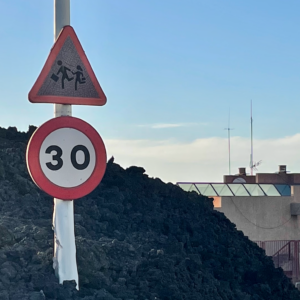
We aim to increase awareness and understanding of the impacts of the mass tourism model in the Canary Islands on residents, the environment, and economic stability.
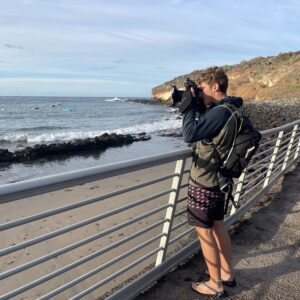
We aim to increase the awareness and understanding of volcanic risk, emergency plans, communication, and preparedness in the Canary Islands.
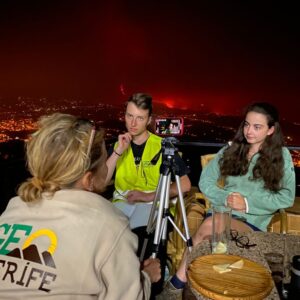
701 out of 1,298 homes affected by the volcano have been paid for – Nieves Lady Barrato, Presidential Advisor in the Government of the Canary Islands. Government approves new National Hazard surveillance plan – The Government Council of Ministers has approved a National Plan for the Surveillance of Seismic, Volcanological and Geophysical Phenom
701 out of 1,298 homes affected by the volcano have been paid for – Nieves Lady Barrato, Presidential Advisor in the Government of the Canary Islands. Government approves new National Hazard surveillance plan – The Government Council of Ministers has approved a National Plan for the Surveillance of Seismic, Volcanological and Geophysical Phenom
The president of the Cabildo de Tenerife has requested that the new Spanish National Volcanology Centre should be based across both Tenerife and La Palma. Pedro Sánchez, President of the Spanish Government, has announced more aid for those affected by the eruption from the Spanish Government. The documentary “On the Record: Chronicles of Ash and
Thank you to all who have supported this campaign by filling in our survey – we are working on the results and will report back soon
Gracias a todos los que han apoyado esta campaña completando nuestra encuesta. Estamos trabajando en los resultados y les informaremos pronto.
Thank you! We are over 1,000 sponsors helping to highlight the geology of Puertito de Adeje in Tener
After several field campaigns, in association with a variety of experts and students, GeoTenerife h
The La Palma Island Water Council celebrated World Water Day on March 21st 2025, with a day with presentations from scientists and experts on the island and a moderated discussion regarding Water Management in La Palma in a Climate Change Scenario.
Volcanologists, Dr Geoff Kilgour and Dr Janine Kripner, travelled from New Zealand to visit La Palma to collaborate with GeoTenerife to research how the lava flows during the 2021 Tajogaite eruption impacted and destroyed thousands of homes. This research is essential to help inform scenario planning and modelling of future damages in the event of
The La Palma Island Water Council celebrated World Water Day on March 21st 2025, with a day with presentations from scientists and experts on the island and a moderated discussion regarding Water Management in La Palma in a Climate Change Scenario.
Volcanologists, Dr Geoff Kilgour and Dr Janine Kripner, travelled from New Zealand to visit La Palma to collaborate with GeoTenerife to research how the lava flows during the 2021 Tajogaite eruption impacted and destroyed thousands of homes. This research is essential to help inform scenario planning and modelling of future damages in the event of an eruption in the densely populated Auckland prepare. This research was funded by the Natural Haza
We aim to collect and publish updates, from trustworthy news sources, regarding urgent events in the Canary Islands, so that residents and tourists alike can use this hub of information during an emergency and act as a record of events after the event has ended.
• Summarising key events in a simple timeline • Database of news coverage and social media responses • Resources on why the foundations are organising demonstrations • GeoTenerife's press releases and comments to the international media
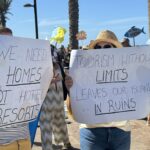
Tenerife’s 2023 wildfire was the most devastating fire in the Canary Islands in the last 40 years and the most severe in Spain in 2023; The fire affected nearly 15,000 hectares, burning 7% of the surface of Tenerife, and causing 80.4 million euros of damage. The forest fire has caused approximately 12 million euros of damage to the agricultural sector, including 2,500-3,500 hives that were destroyed. In addition, it caused more than 12,000 people to have to be evacuated throughout the course of the fire, 364 farms and 246 buildings were affected. Up to 60 protected species may have been impacted by the forest fire, but the true impact on these species is not yet known.
The volcanic eruption on La Palma was preceded by a seismic swarm starting on September 11th, and by September 19th the volcano, later named Tajogaite, started erupting. Over the following weeks and months, the lava flows continued to advance, encroaching over 900 hectares of land and destroying more than 1,000 buildings. The eruption was accompanied by earthquakes with magnitudes up to 5.1 mbLg, occasionally felt across multiple Canary Islands.
Our Day-by-Day Eruption Updates from September 11th 2021 – December 25th 2021 includes:
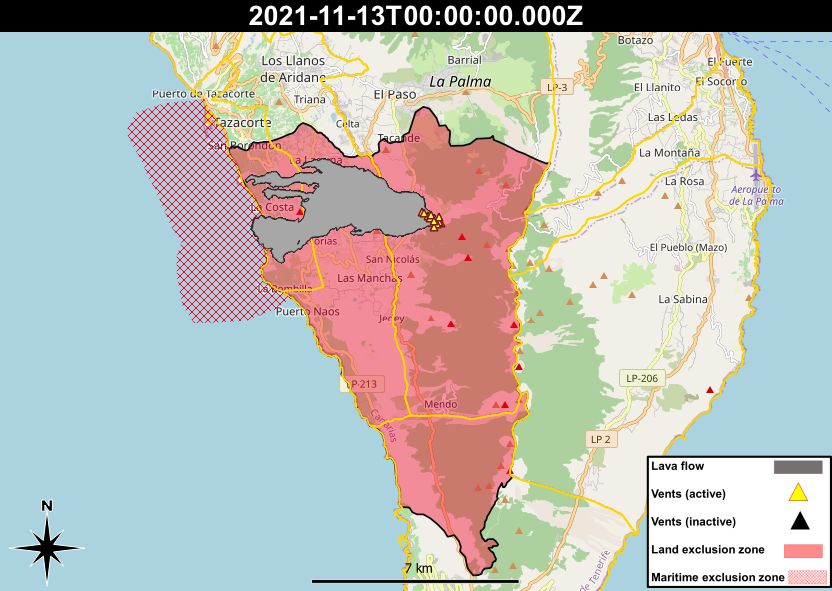
We are often interviewed by local, national, and international news sources for information about volcanic activity, forest fires, and more in the Canary Islands. We are happy to share our knowledge with as many people as possible.
Alongside our resident-focused science, we run the campaigns FFP2 and SamuLaPalma to support those affected by the La Palma 2021 eruption. Furthermore, we make school visits to encourage volcano science in younger Canarian Residents, and also make our internship programmes accessible to students who live in the Canary Islands to ensure our projects benefit the residents of the Canary Islands.
We co-organise the annual VulcanaSymposium with the IEO and also attend other volcanological conferences, VMSG, IAVCEI, and COV12, to discuss our projects and their results with experts in the field of volcano science, in particular Q&As for our LavaBombs documentary. Our VolcanoStories Content Co-ordinator was invited to present at the Royal Holloway University Lyell Geology Day regarding the Tajogaite Eruption timeline project.
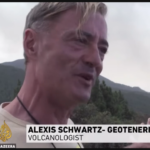
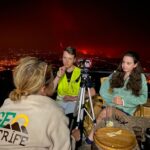
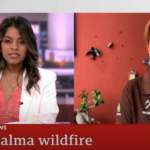
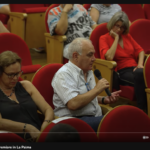
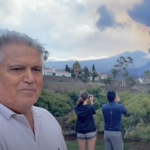



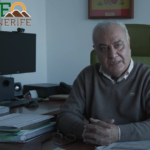
GeoTenerife is committed to fostering valuable collaborations with local, national, and international research institutions, to both conduct valuable geoscience research in the Canary Islands
We are always looking to welcome new collaborations, so if you or your company/research institution is interested in collaborating with us, please get in touch with us via enquiries@geotenerife.com
Our Collaborators include:
and many more valued collaborators.